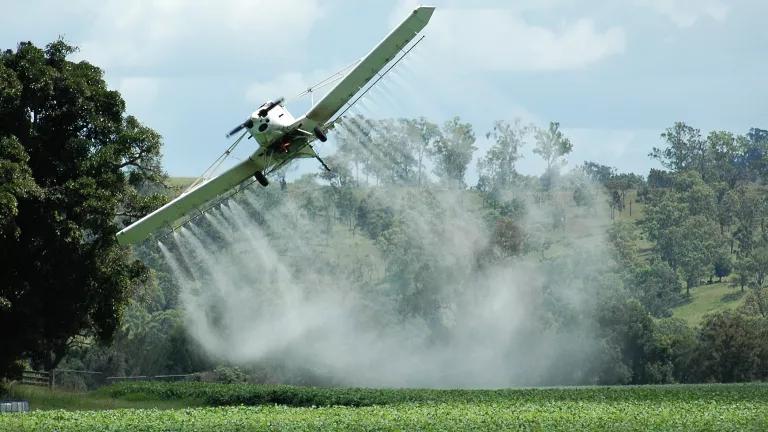City Health Inspectors: Food Donation’s Best Friend?
This blog was co-authored with Maddie Keating (NRDC) and Maggie Staab (Denver Department of Public Health & Environment)
As a community partner, NRDC, is committed to working with local champions to make sure that appropriate surplus foods—whether fresh produce and meat from grocery stores or prepared food from hotels, restaurants and colleges—makes it to people in need rather than being discarded. One of the most critical links in the chain between food donor and food recipient is your local health inspector, employed by cities and states around the country to make sure that food stays safe.
Health inspectors can play a make-or-break role when a business or institution considers donating surplus food. If businesses perceive that city regulations discourage food donation, it can have a chilling effect that deters even the most ardent food donor. That dynamic is particularly important as more foodservice providers consider donating prepared food. By contrast, if health inspectors play a proactive role in encouraging safe food donation it can make a world of difference.
This month, the Denver Department of Public Health & Environment (DDPHE) took a big step in that direction. In conjunction with NRDC’s Food Matters team, they developed user-friendly guidance to communicate that the city recognizes food insecurity in their community and that food businesses are encouraged to donate appropriate food rather than tossing it into the landfill. The guidance makes clear that health investigators are there to help businesses donate food safely—something that is important to food businesses and food recipients alike. It also provides links to more information on liability protections, tax incentives and local rescue organizations that can lend a hand.
The guidance includes a brochure that investigators will share through site visits and more detailed web guidance with all the technical points to make a food safety geek’s heart sing. Denver’s outreach material follows guidance that NRDC developed in conjunction with health inspectors in both Minneapolis (in English and Spanish) and in Nashville.
As Danica Lee, the director of DDPHE’s Public Health Investigations division, puts it, “Our investigators see good food getting tossed every day. At the same time, we know there are members of our community who don’t have enough to eat. If we can make a difference by helping restaurants, schools, hospitals and others donate food safely, you can count us in.”
This guidance for food donors capped off a broader collaboration between NRDC and Denver’s health investigators that included:
- A training session for health investigators led by NRDC that highlighted food insecurity challenges, the environmental impacts of wasted food, and how health investigators can play a vital role in addressing both food insecurity and wasted food through their daily work with food businesses.
- Consultation with local food rescue organizations to identify any concerns about health regulations that might pose undue barriers to food donation.
- A review of the city’s food establishment rules and regulations to identify those that have a bearing on food donation. As a part of that effort, DDPHE updated internal policies on food disposal, allowing foods that, in the past, would have been disposed of to be saved for sale, consumption, or donation.
- Compiling relevant regulations into an easy-to-use online summary specifically for regulated food facilities that are interested in donating food.
- Designing, printing and then distributing the city’s new brochure on safe food donation through a city-wide mailing to licensed facilities and investigators’ on-going discussion of food donation during both routine and new licensing inspections.
It’s not every day that we can make a tangible difference to those around us. If you are a health inspector or a business wanting to share surplus food with others, please consider yourself part of the solution—and learn more here about NRDC’s work to help cities prevent wasted food, rescue surplus food and recycle food scraps.



